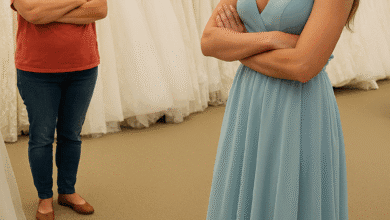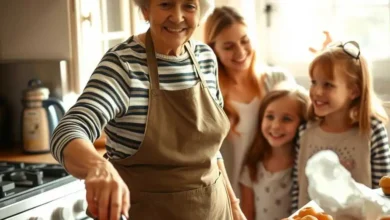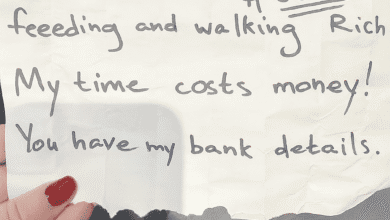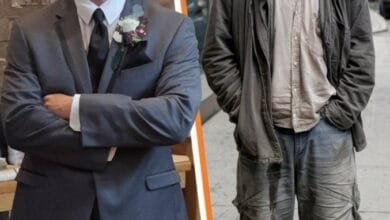My Own Mother Left Me at a Stranger’s Door. 25 Years Later, She Became My Housekeeper—Without Knowing I Was the Daughter She Abandoned.
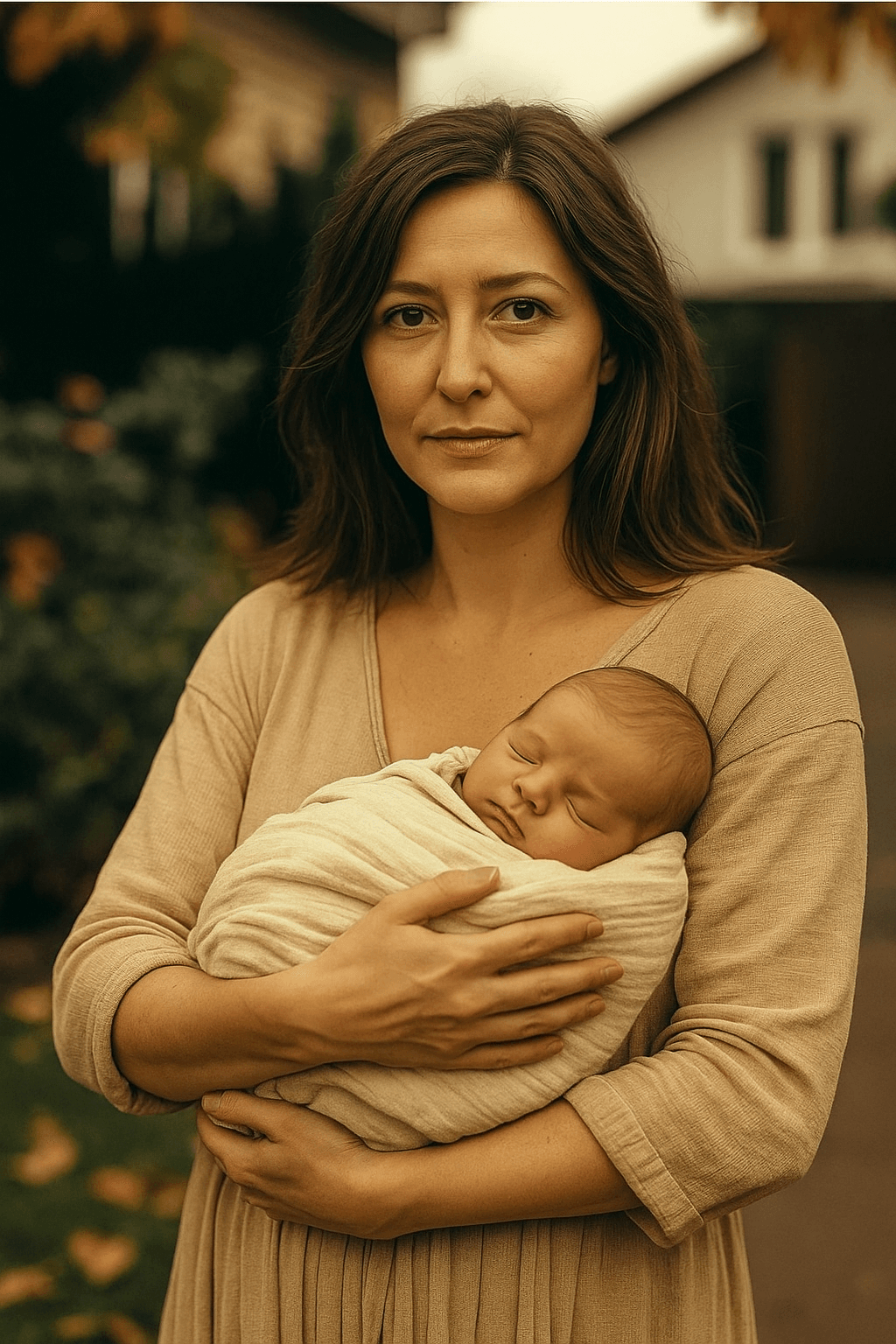
What is a child without roots? No one. Just a ghost that happened to be given a physical shell.
“Does that mean you’ve always felt like a ghost?” Mikhail asked as he stirred his coffee in my elegant kitchen.
I looked at him—my only friend, the one who knew everything. The man who helped me find the woman who once carried me and then cast me out like a discarded draft.
My first cry didn’t move her heart. What remained was a note pinned to a cheap baby blanket: “Forgive me.”
My adoptive parents opened the door and found a baby. Alive. Crying. They had enough decency not to send me to an orphanage, but not enough love to make me truly theirs.
“You are in our house, Alexandra, but remember—we are strangers to you, and you to us. We are only fulfilling a human duty,” Lyudmila Petrovna would repeat every year on the anniversary of my arrival.
Their apartment became my prison. I was given a corner in the hallway with a folding bed. I ate separately, always after them, finishing cold leftovers.
My clothes came from flea markets—always two sizes too big.
At school, I was an outcast. “Abandoned,” “nameless,” “lost”—whispered behind my back.
I didn’t cry. Why bother? I stored everything inside. Strength. Anger. Resolve. Every shove, every insult, every cold stare turned into fuel.
At thirteen, I started working—handing out flyers, walking dogs. I hid my earnings in a crack between the floorboards. One day, Lyudmila found it while cleaning.
“Stealing?” she asked.
“I knew it. The apple never falls far from the tree…”
“It’s mine. I earned it,” I said.
“Then you’ll pay. For food. For living here. You’re old enough now.”
By fifteen, I worked every free moment outside of school. By seventeen, I got into a university in another city.
I left with just a backpack and a box—the only thing linking me to my past: a newborn photo taken by a nurse, moments before a woman I never knew carried me away from the hospital.
“She never loved you, Sasha,” my adoptive mother told me before I left.
“And neither did we. But at least we were honest.”
In the dorm, I shared a room with three other girls. I lived off instant noodles. I studied obsessively—only top grades, only scholarships.
At night, I worked at a 24-hour store. My classmates laughed at my worn-out clothes. I didn’t hear them. I only heard one voice inside:
“I’ll find her. I’ll show her who she threw away.”
Life is unexpected. Sometimes it gives you a chance when you least expect it.
In my third year, fate smiled—our marketing professor assigned us a project: to develop a strategy for an organic cosmetics brand.
I didn’t sleep for three days, pouring myself into that assignment. When I finished the presentation, the classroom fell silent.
A week later, my professor burst into the room:
— “Sasha, investors from Skolkovo saw your work. They want to meet with you!”
Instead of money, they offered me a small stake in the startup. I signed with a trembling hand—I had nothing to lose.
By the age of 23, I bought a spacious apartment in the city center. I brought only my backpack and that box with the baby photo.
“You know,” I told Mikhail when we met at a conference, “I thought success would make me happy. But it only made me lonelier.”
That’s when I told him my story. Mikhail wasn’t just a friend—he was a private investigator. He offered to help. Two years of searching.
Irina Sokolova.
47 years old. Divorced. Doing odd jobs to survive. No children. “No children.”
That line hurt more than anything. I saw her picture—a worn-out face, grayed by life.
“She’s looking for work,” Mikhail said. “She cleans apartments. Are you sure?”
“Absolutely.”
The plan was simple: Mikhail posted a job ad in my name. He interviewed her at my office, sitting at my desk, while I watched through a hidden camera.
A week later, Irina started working.
I watched her enter my life with lemon-scented spray bottles and cleaning cloths. The woman who had once meant everything to me—but chose to be nothing.
She mopped my floors, dusted my shelves full of expensive trinkets I’d bought to impress.
Two months. Eight cleanings. She came and went, leaving only a citrus smell and sparkling surfaces.
We barely spoke. I was always “too busy” or “on an important call.” But I watched her—every movement, every breath.
Every time she left, I took out the baby photo and looked into that tiny face, searching for answers. Why? What was so wrong with me that she couldn’t love me?
The answer came unexpectedly.
One day, she paused near my bookshelf, where a silver frame held my graduation photo.
She picked it up, squinting as if trying to remember something long forgotten.
“See something familiar?” I asked.
“Alexandra Gennadievna… I didn’t mean to… I was just dusting.”
“You’re crying,” I said.
“It’s nothing… the dust. It irritates my eyes. Happens a lot.”
“There’s something about you…” she whispered. “You remind me of someone. From long ago.”
“Irina Mikhailovna, twenty-five years ago you left a baby at someone’s door. A girl. With a note: ‘Forgive me.’”
She looked up.
“That… that can’t be,” she whispered.
“You destroyed my dreams. I always imagined asking you—why? Why didn’t I even deserve a chance?”
“You don’t understand… I was so young. The baby’s father left when he found out. My parents kicked me out. I had nothing—no home, no money, no support. I didn’t know what to do…”
“So you gave me away?”
“I thought it would be better for you. That someone could give you what I couldn’t. A home. Food. Love…”
She lowered her head and began to sob.
“Please… forgive me, if you can. Or at least… let me…”
“Let you what?” I asked.
“Stay near you. Get to know you. Even if it’s just as your cleaner. Please don’t send me away.”
“No,” I said quietly. “I don’t want revenge. But there’s nothing to forgive either. You made your choice then. I’m making mine now. I understand you. And I finally understand myself.”
I lifted the newborn photo to my eyes.
“You made it,” I whispered. “You did it on your own.”
A few days later, I called her.
I invited her to meet again.
To start over.
A new life.
Together.
